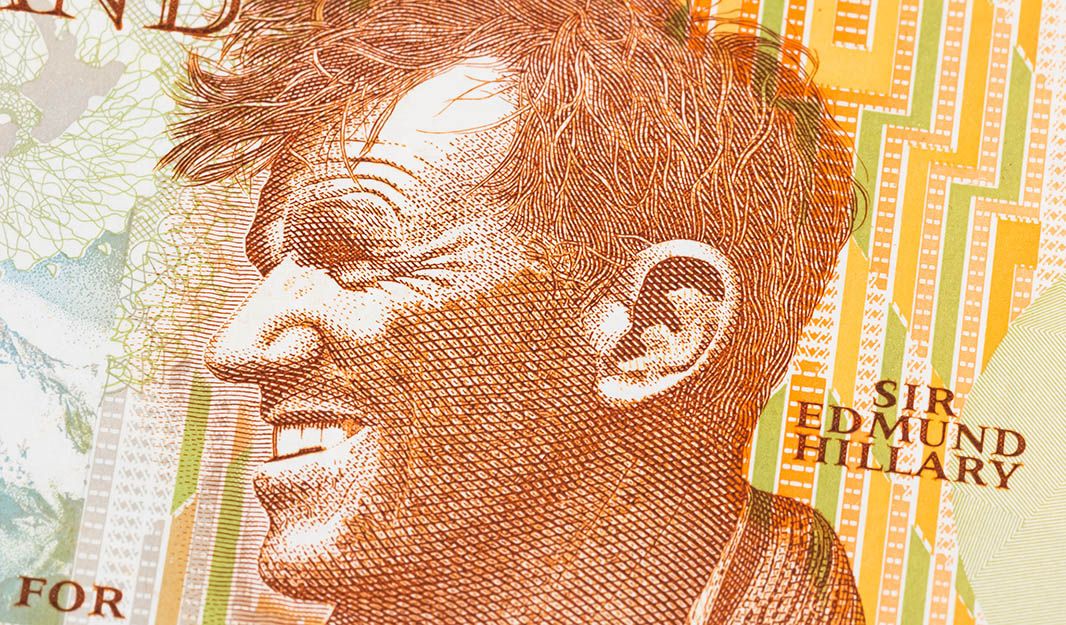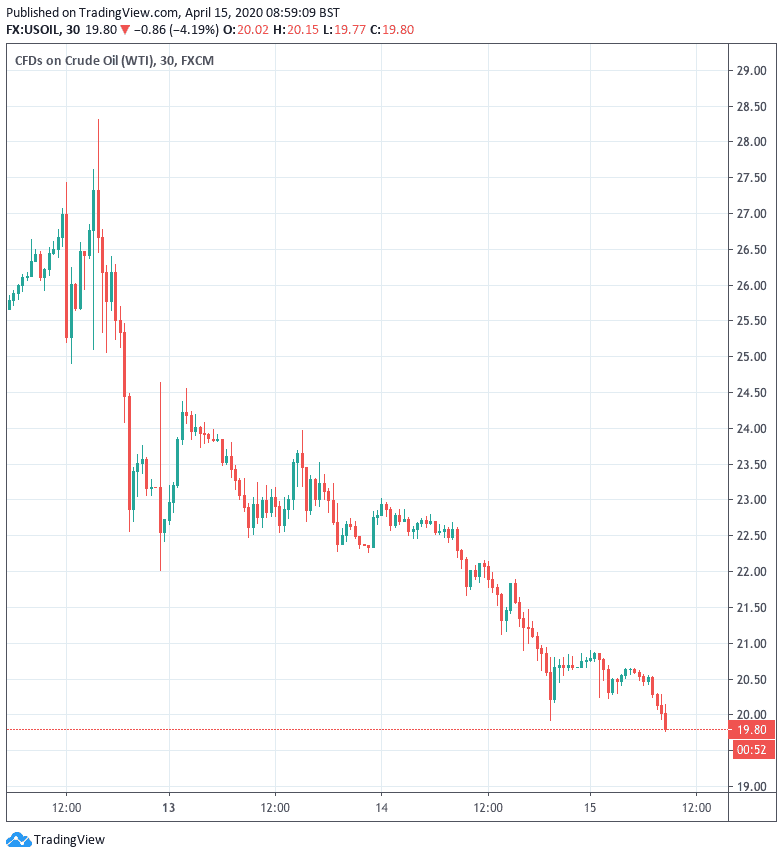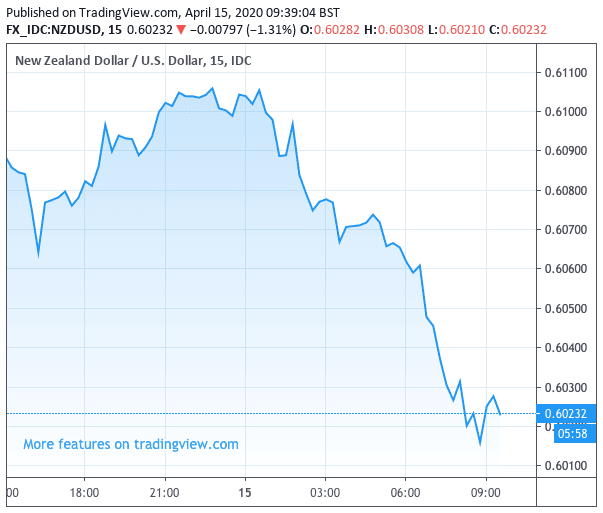New Zealand Dollar in Sharp Slump as Investor Sentiment Sours
- NZD in retreat
- Market sentiment sours
- Negative NZD bias held at RBC Capital Markets
- Latest Covid-19 GBP/NZD bank forecasts available for download at Global Reach

Image © Adobe Stock
- GBP/NZD market rate: 2.0764
- Bank transfer rates (indicative): 2.0037-2.0183
- FX specialist rates (indicative): 2.0110-2.0577 >> more information
The New Zealand Dollar suffered a sharp decline in mid-week trade amidst a broad swing in global risk appetite into negative territory following two weeks of building optimism that the worst of the coronacrisis had now come to pass.
The New Zealand Dollar had been enduring a two-week spell of appreciation, before sentiment flipped sending commodity prices and world stock markets into negative territory once more as a steady flow of negative data asks questions of the building optimism.
The downshift in sentiment is particularly important for the New Zealand and Australian Dollars which tend to show a clear correlation to trends in sentiment, rising when markets are on the up and falling when they point lower.
"In forex, there is a risk aversion resulting in JPY outperformance, whilst USD is regaining some of its recent lost ground against major forex. AUD and NZD are the key underperformers," says Richard Perry, analyst at Hantec Markets. "In commodities, there is a mixed look to oil after another rout of selling yesterday, whilst the precious metals are beginning to slip back from recent strong gains, with gold a-$15 and silver -2.3%."
The stock market rally of the past two weeks has therefore understandably coincided with a rise in the value of the New Zealand Dollar, but there were questions to be asked as to why major U.S. stock indices were once again priced at the same level as they were in 2019.
For instance, an investor who bought the S&P 500 in August 2019 would have been in profit on Tuesday, April 14. This despite the IMF warning the global economy is facing its biggest slump since the Great Depression.
"The IMF warned yesterday that the economic recession which will follow the ‘Great Lockdown’ will be the steepest in a century," says Ipek Ozkardeskaya, an analyst at Swissquote Bank. "Under these circumstances, and with looming first quarter corporate earnings, recent gains we have seen in equity markets could be the calm before the storm. Investors could close their positions and run to safety in the blink of an eye."
Stock markets have unfortunately become an unreliable financial signal as to the state of the economy owing to the efforts of central banks across the world to prop up economic expansion; they have invariably created a risk-free association between stocks and investors, stepping in to underpin asset prices with their financial wizardry.
But one asset that cannot be conned is oil: it is a function of supply and demand. Yes, OPEC can try and manipulate supply but ultimately the kind of demand fall-off caused by the global slump has put prices under pressure again.
On Wednesday we are seeing a situation where oil is signalling to investors that all is not well with the global economy, which is in turn having a feed-back loop into equities which are giving back some of their recent gains.
Above: Oil prices signal all is not well with the global economy.
Declines across the board are unsurprisingly once more stimulating demand for Dollars, and the New Zealand Dollar is finding itself coming under pressure as would be expected.
"We suspect NZD will remain a proxy for global risk appetite," says Adam Cole, Chief Currency Strategist at RBC Capital Markets.
The Pound-to-New Zealand Dollar exchange rate has risen to 2.0758, putting behind it a near-term floor down at 2.0426 reached last Friday.
The New Zealand-U.S. Dollar exchange rate has meanwhile fallen to 0.6021, which makes for a sharp 1.30% decline on the day.
Above: NZD/USD turns lower
"NZ is an open economy exposed to global growth, it is also an external debtor and still runs a current account deficit. NZD is less liquid than all other G10 currencies except NOK. With global risk appetite still vulnerable to setbacks until a longer-term solution to COVID-19 is found, our forecasts have a moderately negative-NZD bias," says Cole.
NZD is now forecast to trade at 0.60 by mid-year at RBC Capital, EUR/NZD at 1.87, AUD/NZD at 1.03 and NZD/CAD at 0.86.
No GBP/NZD forecasts are available at RBC Capital.






